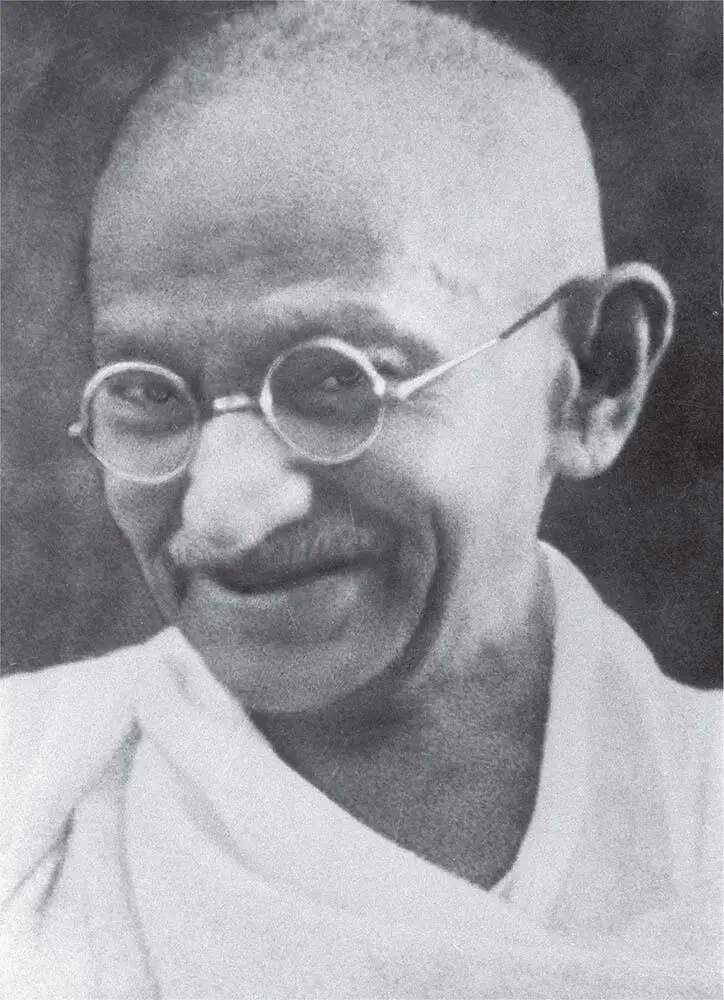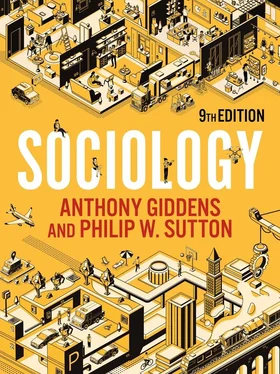Consider information and communications technology (ICT). Over recent decades, the power of computers has increased many thousand times over. A large computer in the 1960s was constructed with thousands of hand-made connectors, but an equivalent device today is much smaller (often hand-held) and needs just a few silicon chips in an integrated circuit. The impact of science and technology on how we live may be driven largely by economic factors, but it also stretches beyond the economic sphere. Science and technology both influence and are influenced by cultural and political factors. Scientific and technological development helped create modern forms of communication such as radio, television and the internet, and these electronic forms have changed the way politics is conducted and partly shape how we all think and feel about the world.
Socio-cultural change includes, as a minimum, the impact of religion and beliefs, communications and leadership on social life. Religion may be a conservative or an innovative force, emphasizing the continuity of traditional values and behaviour or actively promoting change. As Max Weber showed, religious convictions have played a significant mobilizing role in the pressure to transform societies. Weber’s ‘Protestant ethic thesis’ is the best-known example, but in recent times the Catholic Church, seen by many as essentially conservative, played a key role in supporting the Solidarity movement in Poland, which overthrew the communist regime. Similarly, many activists who took part in the ‘Arab Spring’ of 2010–12 saw their actions as part of an attempt to reclaim Islam for their countries from corrupt political leaders and authoritarian regimes.
Communication systems have played an important and enduring role in changing the underlying character of societies. The invention of writing, for instance, allowed recordkeeping and made possible an increasing control of material resources and the development of large-scale organizations. Writing altered people’s perception of the relationship between past, present and future. Societies that keep written records know themselves to have a history, and understanding that history can create a sense of the overall development of a society. With the advent of the internet, communication has become much faster and distance is no longer a significant obstacle. In addition, it has generated a more effective perception of a global society – often called a cosmopolitan outlook – made concrete in global crowdfunding charity campaigns and recent global movements against capitalism and, paradoxically, free-market globalization.
Leadership is a further socio-cultural element of change, which Weber explored through the concept of charisma. Individual charismatic leaders have played important roles in world history. Religious leaders such as Jesus or Muhammad, political and military leaders such as Julius Caesar, or innovators in science and philosophy such as Isaac Newton have all influenced how societies change. An individual leader capable of pursuing dynamic policies, generating a popular following or radically altering existing modes of thought can help overturn an established order.

Mahatma Gandhi fits Weber’s concept of a charismatic leader. His leadership of the national independence movement helped to free India from British colonial rule.

Weber’s conception of leadership is discussed in chapter 18, ‘Religion’.
However, individuals can reach positions of leadership and become effective only if favourable social conditions exist. Adolf Hitler rose to power in Germany in the 1930s, for instance, partly as a result of the tensions and crises that beset the country at that time, which made his apparently simple solutions much more attractive. In a very different way, Mahatma Gandhi, the famous pacifist leader in India during the period leading to independence in 1947, was an effective figurehead because the 1939–45 war and other events had unsettled the British colonial institutions in India, creating a political opportunity for change.
In modern times, the development of science and the secularization of social life have been influential agents of change, contributing to the critical and innovative character of the modern outlook. People no longer accept customs or habits just because they have the age-old authority of tradition and are more likely to be persuaded by rational, scientific argument. In addition to how we think, the content of ideas has changed. Ideals of self-betterment, individual freedom, equality and democratic participation are part of modern life. These ideals may have developed in a particular form in the West, but they have become genuinely universal in their application, promoting social and political change in most regions of the world.
A third element in fundamental social change is political organization. In most types of society, the existence of distinct political agencies such as chiefs, lords, kings and governments is highly significant in shaping society’s course of development. Political systems are not, as Marx argued, merely the direct expression of underlying economic organization; different types of political order may exist in societies with very similar economic systems. For instance, some industrial capitalist societies have had authoritarian political systems (Nazi Germany and South Africa under apartheid), while others are based on democratic participation (the USA, Britain or Sweden).
The political and military struggle between nations has driven social change in modern times. Political change in traditional civilizations was confined to small groups of elites, such as members of aristocratic families who replaced each other as rulers, but, for the majority, life went on virtually unchanged. This is not true of modern political systems, in which the activities of political leaders and government officials constantly affect the lives of the population. Both externally and internally, political decision-making promotes and directs social change far more effectively. Governments play a major role in stimulating, and sometimes retarding, economic growth, and in all industrial societies there is a high level of state intervention in the economy. Even in apparently ‘free-market’ economies, trade unions help to regulate market forces and governments set the legislative framework within which companies operate.
Marx studied political economy in the nineteenth century. Although its meaning has changed since then, political economy generally refers to the study of all the ways in which political institutions and economic systems influence one another. It is often important, for the purposes of analysis, to separate the economic, the political and the socio-cultural aspects of social change, but we should remember that phenomena in the social world are complex amalgams of these different spheres. Nowhere is this more significant than when trying to grasp the multifaceted process of globalization, which is transforming social life and challenging the longstanding autonomy of individual nation-states.
The concept of globalization is common currency in academic research, political debate, business strategy and the mass media. Yet, when the concept is invoked, it often refers to different things. For some, globalization is something like a political and economic project, pursued by elite groups in the Global North and aimed at promoting global trade to their own advantage. This is a version that provokes much anger and resistance. On the political right, globalization threatens and ultimately undermines precious national identities. On the left, globalization is often seen as a capitalist-led movement that plunders and exploits new regions, deepening inequalities and destroying good jobs in its wake (Crouch 2019a).
Читать дальше














